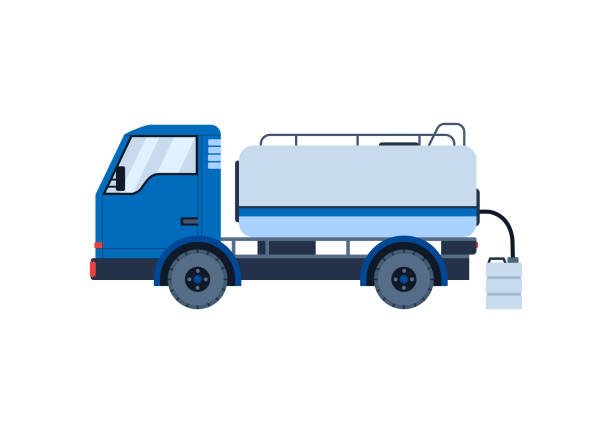On this page, we discuss the roles played by temporal measures such as water tankers to provide temporal relief to areas affected by a lack of water service.
Temporal measures, including the strategic use of water tankers, stand out as critical in delivering temporary relief to regions grappling with interruptions in water services. These measures play several pivotal roles, underlined by their capacity to mitigate immediate challenges posed by water scarcity.
Immediate Water Provision
- Essential Stopgap: Water tankers are a vital stopgap, supplying water promptly to communities when their regular water service is temporarily unavailable. This role is crucial in ensuring that the absence of a regular water supply does not immediately escalate into a crisis.
- Water tankers serve as a crucial emergency water supply, providing immediate access to water for drinking, cooking, and basic hygiene in areas where the regular water service is unavailable or compromised.
Health Crisis Mitigation
- Preventing Health Issues: By delivering clean water, these measures effectively prevent health issues that could arise from communities relying on unsafe water sources. This is particularly important in preventing outbreaks of waterborne diseases.
- By supplying clean and safe drinking water, these measures help prevent the outbreak of waterborne diseases, thus protecting public health in communities facing water service interruptions.
Aid for Vulnerable Populations
- Critical Support: Water tankers provide crucial support for communities most susceptible to the impacts of water scarcity. This highlights the role of temporal measures in safeguarding the most vulnerable segments of the population during periods of water service disruption.
- Water tankers are especially important for supporting vulnerable communities that are disproportionately affected by water scarcity. They ensure that these communities receive the necessary water supplies to meet their daily needs.
Hygiene and Sanitation Maintenance
- Sustaining Basic Hygiene: The water supplied is vital for maintaining hygiene and sanitation in areas affected by a lack of water service. This ensures that essential hygiene practices are not neglected, which is vital for public health.
- The provision of water through tankers is critical for maintaining hygiene and sanitation in affected areas. It allows for basic cleaning, handwashing, and other sanitary practices that are vital for preventing the spread of diseases.
Mobility and Accessibility
- Quick Reach: Thanks to their mobility, water tankers can quickly reach and serve a wide range of locations, including those that are remote or hard-to-access. This ability ensures that relief can be provided where it is needed most, without significant delay.
- In regions where agriculture depends on consistent water supply, water tankers can provide a temporary solution for irrigation, helping to sustain crops and, by extension, local economies during periods of water scarcity.
Agricultural Support
- Irrigation Needs Addressed: In areas reliant on agriculture, water tankers temporarily meet irrigation needs, helping to preserve crops until more permanent solutions to water supply issues are implemented. This is essential for food security and the livelihoods of rural communities.
- Following natural disasters that damage water infrastructure, water tankers are an integral part of the emergency response, ensuring that affected populations have access to water for immediate survival needs.
Disaster Response Enhancement
- Integral to Emergency Response: Following natural disasters that compromise water infrastructure, water tankers become an integral part of emergency response efforts. They ensure that affected communities have access to water, which is critical for survival in the immediate aftermath of a disaster.
- The mobility of water tankers allows for flexible and rapid deployment to various locations, including remote or hard-to-reach areas, ensuring that relief efforts can be extended to where they are most needed.
Temporal measures like water tankers play indispensable roles in providing temporary relief during water service disruptions. These roles underscore the importance of such measures as an interim solution, while also highlighting the need for ongoing efforts towards long-term strategies to comprehensively address challenges related to water service.
The critical roles of temporal measures like water tankers in providing temporary relief to areas affected by water service disruptions underscore their importance as an interim solution, while highlighting the ongoing need for long-term strategies to address water service challenges.

